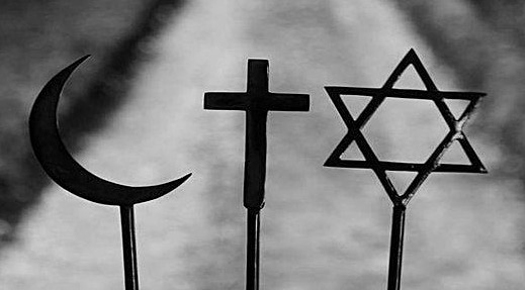
Priests, imams, rabbis and other religious leaders in Great Britain will soon have to enroll in a national register of faith leaders and be subjected to government-ordered training and security checks as part of the Home Office’s latest move to crack down on religious extremism. The controversial proposal appeared in a leaked draft of the British government’s new counter-extremism protocol, which seems to be far more stringent than the previous versions of the document.
The protocol, due to be released in fall this year, says Whitehall would require all religions to maintain a national register of faith leaders and the government would offer the minimum level of training and checks necessary for all faith leaders to enlist themselves in the new register. Registration would be made compulsory for all religious leaders who want to work in the public domain, including universities and houses of worship. Practically, all religious leaders work with the public sector and thus, the new requirement would apply to the great majority of such individuals. The move marks a notable increase in the state’s involvement with various religious practices and it is expected to face opposition from several religious bodies.
Maulana Shah Raza, an imam and founding member of the Mosques and Imams National Advisory Board (MINAB), a self-regulatory body that aims to promote the best religious practices, has already warned the government not to interfere in religious affairs or expand the state’s involvement in determining theological issues.
“The Government needs to concentrate on ensuring that safeguards are in place to protect the public and treating all faith communities equally,” he said.
MINAB was set up with ministerial support under the previous Labor government and its relationship with Whitehall has worsened after the regulatory body refused to sever ties with religious extremists.
The government’s new strategy emerged a week after Great Britain announced that it had killed two Islamic State fighters of British origin in a drone attack. Reportedly, 21-year-old Reyaad Khan, a resident of Cardiff and the primary target of the drone attack, was radicalized at al-Manar mosque in Wales –that is believed to have invited a string of radical preachers– including Muhammad Mustafa al-Muqri, past leader of Egyptian Islamic Jihad as well as an al-Qaeda ally. Until 2013, the mosque’s internal preacher, Ali Hammouda, who is notorious for likening music to sickness, was asked to visit Cathays High School, which was ironically one of the schools that Khan attended, to interact with students during their lunch break and tell them how free-mixing between men and women is prohibited in Islam.
Another extremist preacher –who has close relations with terrorist Usman Ali– was appointed chaplain of a local hospital after serving for a few years in the management committee of a community center. He was sacked from his posts after an investigative report claimed that he had invited a guest speaker who applauded the Taliban.
A spokesperson for the Roman Catholic Church said that the government had not yet consulted the religious body with regards to its new proposal. Other senior priests said that the state’s plans to supervise religious activities would meet with firm opposition.
British Prime Minister David Cameron has gone on record to say that the country’s fight against Islamist extremism is a struggle of this generation and it has to meet with victory for the same reasons that Nazism was eliminated.
The leaked draft also criticizes the police and local councils for having failed to tackle scandals that were exposed by the media. The protocol, which was supposed to be released in spring this year, has been postponed amidst growing concerns voiced by certain sections of the government and most advocates of counter-extremism –who fear that the strongly-worded proposition of banning individuals whose behavior fall below the threshold of counter-terrorism legislation– undermines British values.
Cameron has said, “For far too long, we have been a passively tolerant society, saying to our citizens that as long as you obey the law, we will leave you alone. This government will conclusively turn the page on this failed approach.”
Earlier this year, Haras Rafiq, director of the counter-terrorism think tank Quilliam, referred to the protocol as totalitarian.
“It will play into the hands of extremists,” he said “It is very noticeable that the main Islamist groups are not really up in arms about this. They want it, because it will feed the narrative of grievance and victimhood they love. They will be able to use it to say, ‘look, we told you so.'”
The document describes extremism as the active or vocal opposition of fundamental British values, including the rule of law, individual liberty, democracy and mutual respect and tolerance for different religions.
Photo Credits: Uncle Sam's Misguided Children
